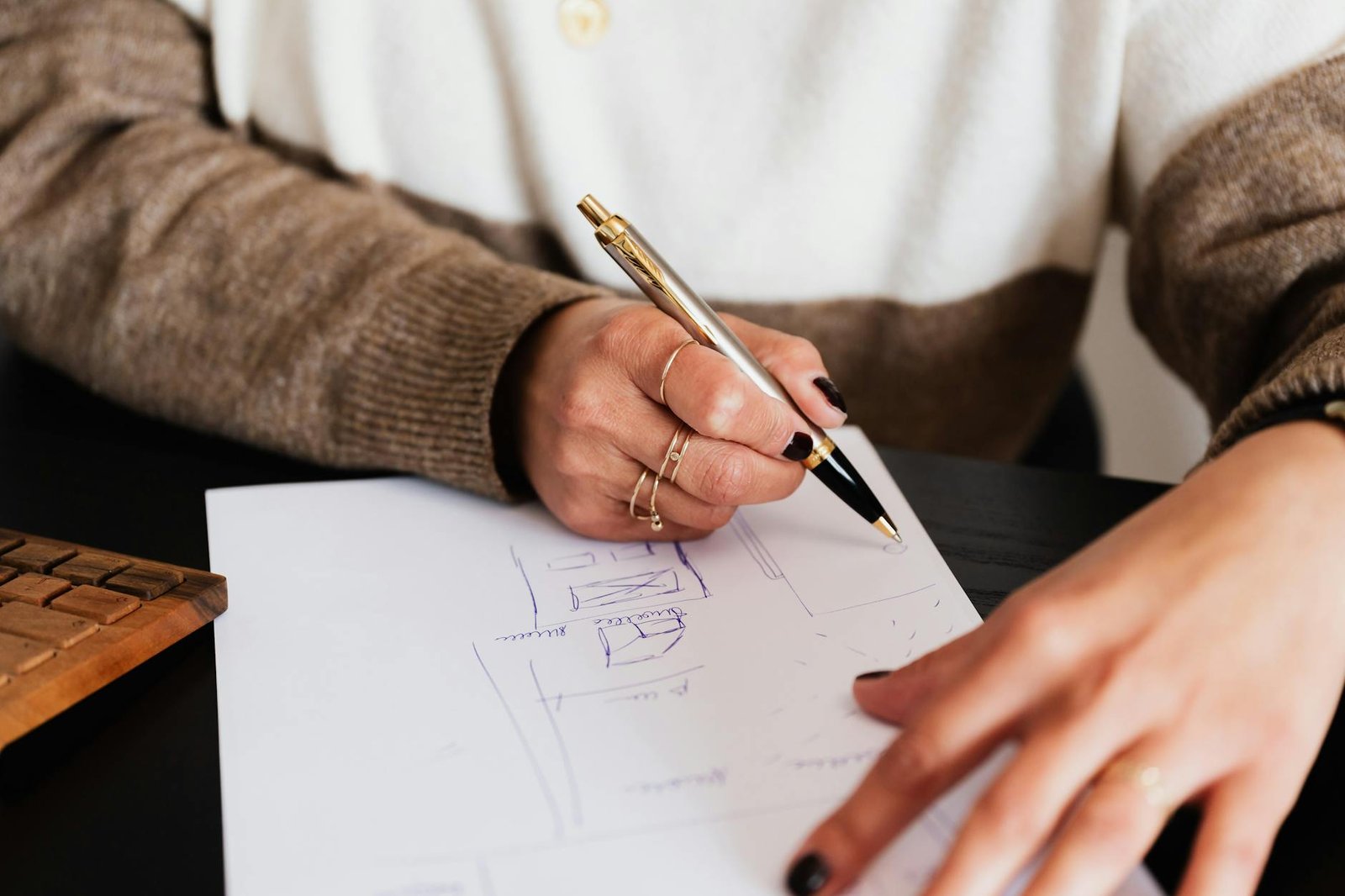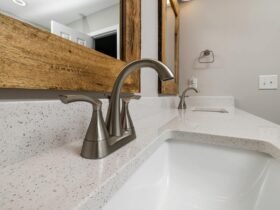The Role of Commercial Interior Designers
Commercial interior designers play a pivotal role in transforming business spaces into functional and aesthetically pleasing environments. They are experts in creating designs that align with the goals and needs of businesses, while also considering factors such as branding, employee productivity, and customer experience. Let’s explore the purpose and importance of commercial interior designers in more detail.
Understanding the Purpose of Commercial Interior Designers
The purpose of commercial interior designers is to optimize the functionality, efficiency, and aesthetics of commercial spaces. They work closely with business owners and stakeholders to understand their vision, objectives, and requirements. By combining their expertise in design principles, space planning, and industry knowledge, commercial interior designers create customized solutions that enhance the overall appeal and functionality of the space.
Commercial interior designers go beyond simply selecting colors and furniture. They consider various factors such as traffic flow, space utilization, ergonomics, and lighting to create harmonious and functional environments. Their designs are tailored to reflect the brand identity, values, and target audience of the business, ensuring a cohesive and impactful space that aligns with the overall business strategy.
Importance of Commercial Interior Design in Business Success
The role of commercial interior design should not be underestimated when it comes to the success of a business. A thoughtfully designed commercial space can have a significant impact on both employees and customers, leading to improved productivity, increased customer satisfaction, and ultimately, enhanced business performance.
One of the key benefits of commercial interior design is the creation of a positive and consistent brand image. A well-designed space reinforces the brand identity and helps businesses differentiate themselves from competitors. From color schemes and materials to furniture and signage, every element is carefully chosen to reflect the brand’s personality and values. This cohesive branding can leave a lasting impression on customers, fostering brand loyalty and recognition.
Additionally, commercial interior design can greatly impact employee productivity and morale. A well-designed workspace that promotes comfort, collaboration, and functionality can boost employee satisfaction and engagement. By creating a visually appealing and functional environment, commercial interior designers can enhance the overall well-being of employees, leading to increased productivity and creativity.
In summary, commercial interior designers play a crucial role in shaping the success of businesses. Their expertise in designing functional, visually appealing, and brand-aligned spaces can elevate the overall business image, improve employee satisfaction, and create a memorable customer experience. When it comes to transforming commercial spaces, partnering with a skilled commercial interior designer is a wise investment that can yield significant long-term benefits.
Services Offered by Commercial Interior Designers
Commercial interior designers offer a range of services to help businesses create functional and aesthetically pleasing spaces that align with their brand image and goals. These services include space planning and optimization, interior design concept development, and furniture and fixture selection.
Space Planning and Optimization
One of the primary tasks of a commercial interior designer is to optimize the use of available space. They have a keen eye for understanding the flow of a business and how to make the most efficient use of the space to enhance productivity and functionality. Through careful analysis and consideration of the client’s needs, an interior designer can create a layout that maximizes the available space and allows for smooth operations.
During the space planning process, an interior designer takes into account factors such as the type of business, the number of employees, the workflow, and any specific requirements or regulations. They create detailed floor plans and layouts that optimize the space for various functions, such as workstations, meeting rooms, reception areas, and storage. By utilizing their expertise, interior designers can transform a space into an efficient and well-organized environment.
Interior Design Concept Development
Commercial interior designers are skilled in developing design concepts that align with the brand identity and goals of a business. They work closely with clients to understand their vision and translate it into a cohesive interior design concept.
The concept development phase involves creating a visual representation of the design through mood boards, color schemes, materials, and finishes. This process allows clients to envision how the final space will look and feel. Interior designers consider various elements such as lighting, textures, furniture styles, and architectural features to bring the concept to life.
By collaborating with the client and incorporating their input, commercial interior designers ensure that the design concept reflects the brand image and creates a welcoming and inspiring atmosphere for employees and customers alike. The end result is a harmonious space that resonates with the business’s values and aspirations.
Furniture and Fixture Selection
Choosing the right furniture and fixtures is a crucial aspect of commercial interior design. Interior designers have extensive knowledge of the latest trends, materials, and suppliers, allowing them to make informed decisions that meet the client’s requirements.
During the furniture and fixture selection process, interior designers consider factors such as functionality, aesthetics, durability, and budget. They carefully curate a collection of furniture pieces, lighting fixtures, window treatments, and other accessories that complement the overall design concept and enhance the functionality of the space.
By leveraging their industry connections and expertise, commercial interior designers help businesses make informed decisions about the selection of furniture and fixtures that align with their design goals and budget.
The services offered by commercial interior designers go beyond these three areas, but space planning and optimization, interior design concept development, and furniture and fixture selection form the foundation of their work. By engaging the services of a skilled commercial interior designer, businesses can transform their spaces into functional, visually appealing environments that support their brand identity and contribute to their overall success.
Benefits of Hiring a Commercial Interior Designer
When it comes to transforming your business space, hiring a commercial interior designer can make a significant impact. These professionals possess the expertise and creativity to elevate your business environment and enhance its overall functionality. In this section, we will explore some key benefits of hiring a commercial interior designer.
Enhanced Brand Image and Identity
A well-designed interior can serve as a powerful tool for establishing and reinforcing your brand image and identity. Commercial interior designers have a keen understanding of how to incorporate your brand elements into the design, such as colors, logo, and overall aesthetic. By creating a cohesive and visually appealing space, they help to leave a lasting impression on clients and customers.
Through the strategic use of design elements, a commercial interior designer can effectively communicate your brand’s values, personality, and unique selling points. Whether it’s a retail store, office space, or restaurant, the design choices made by an experienced designer can evoke the desired emotions and connect with your target audience. This can result in increased brand recognition and customer loyalty.
Improved Employee Productivity and Morale
The design of your workspace has a direct impact on employee productivity and morale. A well-designed and functional office layout can significantly enhance efficiency, collaboration, and overall job satisfaction. Commercial interior designers specialize in creating work environments that support the specific needs of your employees and facilitate their daily tasks.
By optimizing the layout, lighting, and acoustics, a commercial interior designer can create a workspace that promotes productivity and minimizes distractions. They understand the importance of ergonomic furniture, comfortable seating, and proper storage solutions to ensure employee comfort and well-being. A thoughtfully designed office space can also contribute to a positive company culture and foster a sense of belonging among employees.
Creating a Memorable Customer Experience
In today’s competitive business landscape, providing a memorable customer experience is crucial for success. A commercial interior designer can help create an environment that engages customers and encourages them to linger, explore, and ultimately make a purchase. By carefully considering factors such as layout, lighting, color schemes, and signage, designers can orchestrate a cohesive and immersive experience for customers.
From retail stores to restaurants, the design choices made by a commercial interior designer can influence how customers perceive your business and interact with your products or services. By creating visually appealing displays, comfortable seating areas, and intuitive navigation paths, designers can guide customers through a seamless and enjoyable journey. This can lead to increased customer satisfaction, repeat visits, and positive word-of-mouth recommendations.
By harnessing the expertise of a commercial interior designer, you can unlock the potential of your business space and reap the benefits of an enhanced brand image, improved employee productivity, and a memorable customer experience. When seeking a commercial interior designer, consider factors such as their portfolio, client reviews, and compatibility with your business goals. To learn more about finding the right interior designer near you, check out our article on interior designer near me.
Finding the Right Commercial Interior Designer
When it comes to hiring a commercial interior designer, finding the right fit for your business is essential to ensure a successful project. Here are some factors to consider and questions to ask when choosing a commercial interior designer.
Factors to Consider When Choosing a Commercial Interior Designer
-
Experience: Look for a commercial interior designer with experience in the specific type of project you have in mind. Whether it’s an office, retail space, or restaurant, finding a designer who has successfully completed similar projects can provide valuable insights and expertise.
-
Portfolio: Review the designer’s portfolio to get a sense of their style and design aesthetic. Look for a portfolio that aligns with your vision and desired outcome. This will help you gauge whether their design approach matches your business’s brand and identity.
-
Credentials and Certifications: Check if the interior designer holds any relevant certifications or memberships in professional organizations. These credentials can demonstrate their commitment to professionalism and ongoing education in the field.
-
Client Testimonials and References: Request client testimonials or references to get firsthand feedback on the designer’s work. Reach out to previous clients to inquire about their experience, communication, and overall satisfaction with the designer’s services.
-
Budget Considerations: Understand the fee structure and pricing model of the interior designer. Discuss your budget upfront to ensure they can work within your financial constraints. Keep in mind that while cost is an important factor, it should not be the sole determinant of your decision. For more information on interior designer costs, refer to our article on interior designer cost.
Questions to Ask When Interviewing Potential Designers
-
What is your design process? Inquire about the designer’s approach to each phase of the project. Understanding their design process will give you an idea of how they will tackle your project and ensure a smooth collaboration.
-
Can you provide a timeline for the project? Ask about the expected timeline for completing the project. This will help you plan and make necessary arrangements to minimize disruption to your business operations.
-
How do you handle project management and communication? Clear and effective communication is crucial for a successful project. Discuss how the designer manages project timelines, coordinates with contractors and suppliers, and keeps you informed throughout the process.
-
Do you have a network of contractors and suppliers? Find out if the designer has a network of reliable contractors and suppliers they frequently work with. Having established relationships can streamline the project and ensure quality workmanship.
-
Are you familiar with local building codes and regulations? It’s important to work with a designer who is knowledgeable about local building codes and regulations. They should be able to navigate any necessary permits and ensure compliance with safety standards.
Remember to trust your instincts and choose a commercial interior designer who not only possesses the necessary skills and experience but also understands your vision and goals. By considering these factors and asking the right questions, you can find a designer who can bring your commercial space to life. If you’re looking for an interior designer near you, check out our article on interior designer near me for guidance.













Got a Questions?
Find us on Socials or Contact us and we’ll get back to you as soon as possible.